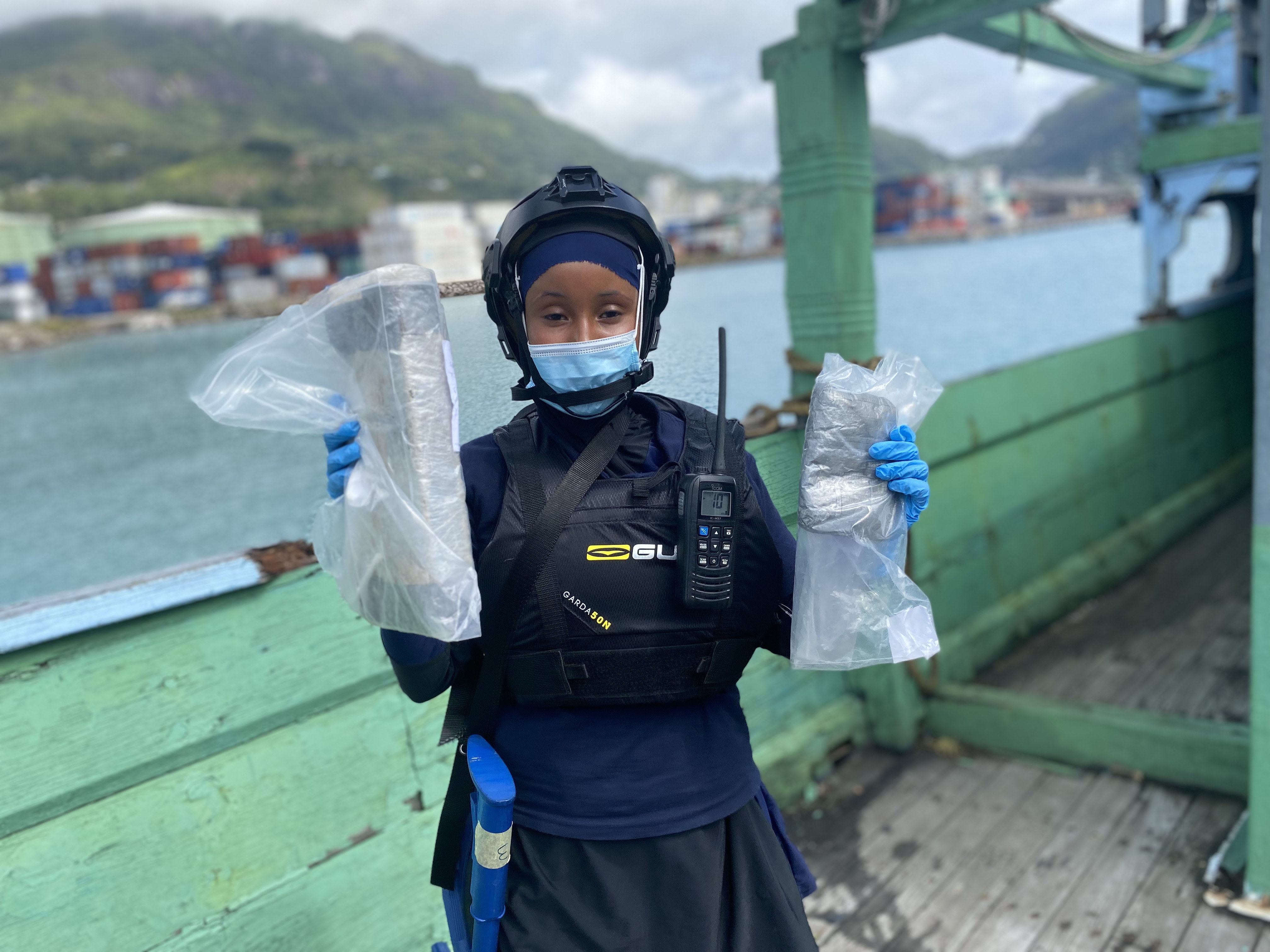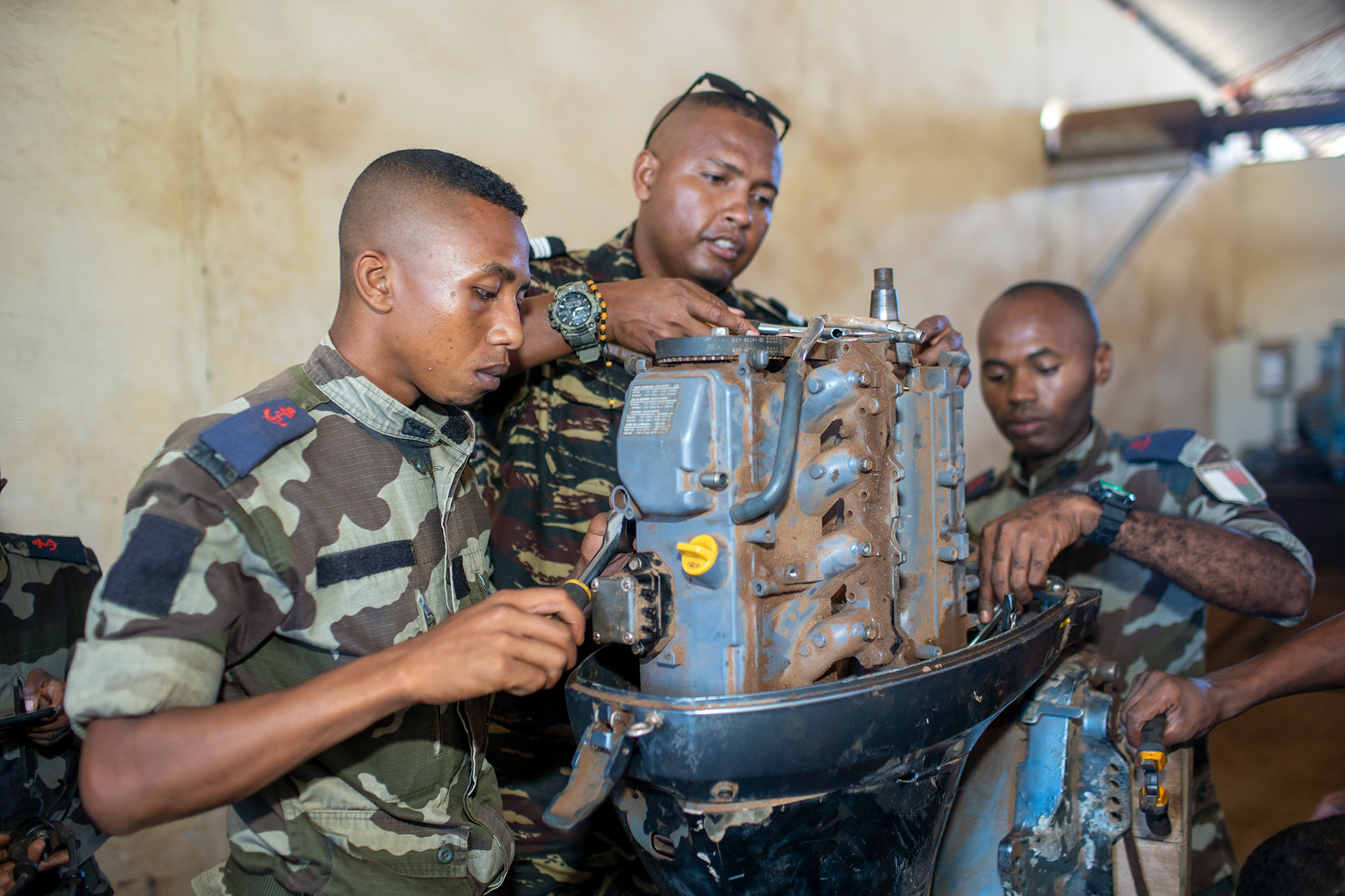UNODC Eastern Africa News and Stories
You are here: Home / News
World Drug Day: Strengthening Maritime Security
 Maritime routes have long been exploited by drug traffickers due to the vast expanses of open sea and the complexity of maritime laws and jurisdictions. The illicit drug trade via maritime channels poses severe threats, not only in terms of drug proliferation but also through its links to organized crime, terrorism, and human trafficking. Addressing these challenges requires a coordinated international response, where the United Nations Office on Drugs and Crime Global Maritime Crime Programme (UNODC GMCP) plays a vital role.
Maritime routes have long been exploited by drug traffickers due to the vast expanses of open sea and the complexity of maritime laws and jurisdictions. The illicit drug trade via maritime channels poses severe threats, not only in terms of drug proliferation but also through its links to organized crime, terrorism, and human trafficking. Addressing these challenges requires a coordinated international response, where the United Nations Office on Drugs and Crime Global Maritime Crime Programme (UNODC GMCP) plays a vital role.
One of the cornerstone strategies of UNODC GMCP is the delivery of a variety of targeted training sessions aimed at equipping Member States with the necessary tools and knowledge to combat maritime crimes effectively. By adopting a comprehensive approach to combating maritime crimes and drug trafficking, maritime law enforcement capabilities have been significantly enhanced through various critical training programs.
 Maritime Domain Awareness training develops officers' abilities to monitor and analyze maritime traffic, identifying suspicious activities such as drug smuggling operations early on.
Maritime Domain Awareness training develops officers' abilities to monitor and analyze maritime traffic, identifying suspicious activities such as drug smuggling operations early on.
Visit, Board, Search, and Seizure training equips officers with the skills to efficiently board and search vessels suspected of illegal activities, including drug trafficking. This training covers procedures for identifying hidden compartments and handling contraband, crucial steps in disrupting drug trafficking operations.
Pierside Vessel Search Techniques (PVST) training focuses on vessel security and skills for safely organizing methodical and detailed searches of vessels that have been brought to port for more thorough inspection.
Engineering training ensures vessels and fleets remain operational, which is essential for maintaining readiness.
Finally, crime scene preservation training enables officers to manage evidence found on vessels to support prosecuting suspects and dismantling drug trafficking networks.
Beyond individual skills, the UNODC GMCP strongly emphasizes inter-agency and international cooperation. UNODC GMCP’s training facilitates joint exercises and information-sharing workshops, enabling agencies to collaborate seamlessly.
Mr. Fodey, a pilot master with the Somali Ministry of Ports and Marine Transport who attended a PVST training in Mogadishu, highlighted the newfound understanding of inter-agency collaboration's pivotal role in operational efficiency. "Aligning procedures and working together across agencies will significantly streamline our operations," he remarked. His perspective illuminated how cohesive teamwork amplifies the impact of maritime law enforcement, bridging gaps for smoother operations and better outcomes This cooperation extends beyond national borders, promoting regional collaboration to tackle transnational threats. UNODC GMCP's role in fostering this cooperation is instrumental in the collective efforts to combat drug trafficking.

By integrating these specialized skills, UNODC helps ensure law enforcement agencies are well prepared to tackle the multifaceted challenges of drug trafficking at sea and other maritime crime, fostering a more effective and resilient maritime security framework along many of the world’s most important sea lines of communication.
For more information, please contact:
Mr. David O’Connell (David.OConnell@un.org)
Western Indian Ocean Programme Coordinator
Global Maritime Crime Programme
United Nations Office on Drugs and Crime
Click here to visit the UNODC Global Maritime Crime Programme website.